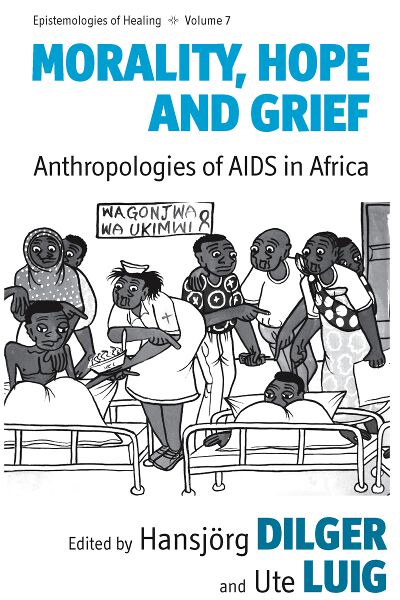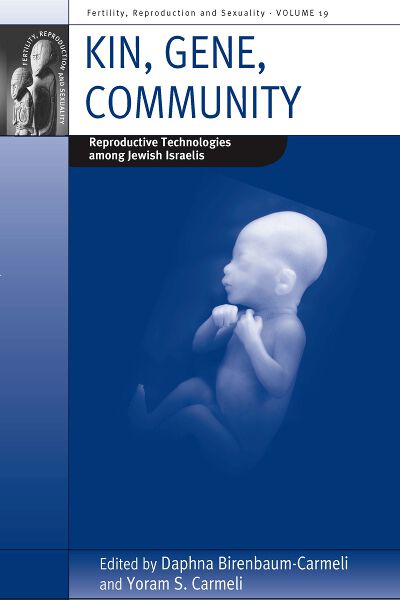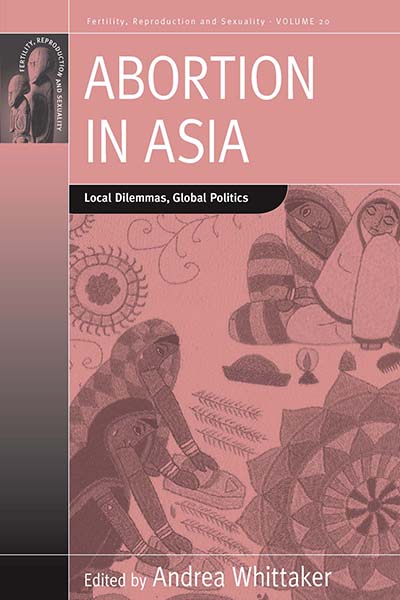
Series
Volume 7
Epistemologies of Healing
See Related
Anthropology JournalsEmail Newsletters
Sign up for our email newsletters to get customized updates on new Berghahn publications.
Morality, Hope and Grief
Anthropologies of AIDS in Africa
Edited by Hansjörg Dilger and Ute Luig
356 pages, 3 illus., bibliog., index
ISBN 978-1-84545-663-4 $135.00/£104.00 / Hb / Published (May 2010)
ISBN 978-0-85745-796-7 $34.95/£27.95 / Pb / Published (December 2012)
eISBN 978-1-80758-648-5 eBook
Reviews
‘[This book]…offers empirically rich and theoretically innovative ethnographic accounts of social life in Africa in the era of AIDS…The level of sophistication, the depth of the ethnographic evidence, and the overall coherence of the chapters are impressive.” · African Studies Review
“The introductory chapter, by Dilger, offers one of the best overviews of anthropological research available on HIV in Africa. It is concise, well structured, and to the point, successfully positioning HIV research within the field of anthropology and providing a historical overview of the emergence of anthropological research on HIV in Africa… Overall, this book should be considered an important collection, relevant for researchers working on HIV in Africa and elsewhere. The findings presented, although often quite particularistic, also have much wider implication for other geographic locales.” · Medical Anthropology Quarterly
“Although the book is intended for development workers and anthropologists with an interest in sub-Saharan Africa, it is interesting to anyone who wishes to understand the social and cultural context of the people of this region in relation to the dynamics of HIV infection…A strength of the book is its provision of extensive experiences of localities and societies that represent multiple countries and regions of Africa dealing with many aspects of the epidemic.” · Journal of the Association of Nurses in AIDS Care
“This is a fascinating and thought-provoking collection, in which every chapter speaks of the resilience as well as the suffering of Africans coping with the effects of the AIDS epidemic…It particularly advances understanding of the ramifications of the increasing, but still limited, availability of anti-retroviral drugs in the under-resourced health systems of Africa.” · Africa
“…the volume as a whole is a thought-inspiring collection of articles describing and analyzing how individuals and groups explain, interpret, and respond to HIV and AIDS in sub-Saharan Africa. Some of the articles are of outstanding quality and will motivate anthropologists to design additional anthropological studies, which will help to better understand the local realities of HIV/AIDS, their impact on individuals and groups, and how to alleviate the immense suffering caused by the epidemic.” · Anthropos
“…the very high quality of the analysis renders this book an outstanding contribution to the debate. Few collections reach so directly to the heart of the lived realities of AIDS in Africa…By rigorously employing local perspectives, it renders intelligible especially those responses to AIDS that often appear as tragically irrational to students who are unfamiliar with the subject.” · African Affairs
"We have come to expect that an emergent disease, once the initial hysteria it sparks has died down, will either be eradicated by money and medicine, or it will settle into the prosaic landscape of ordinary maladies with attendant routines, inconveniences, and bureaucratic exasperations. In Africa, AIDS has not followed either pathway. This outstanding collection of essays takes explicit aim at the tensions that this ‘non-resolution’ has generated in the world region that has felt the greatest impact of the disease: eastern and southern Africa. In these papers, we see vividly how the potential death warrant that AIDS presents to couples, households, children, has institutionalized new forms of social stigma and, at the same time, new levels of collective resilience and courage." · Caroline Bledsoe, Northwestern University
“This volume brings together some of the best, most thoughtful scholarship on AIDS in Africa. The essays are grounded in the troubling economic realities and intimate moral politics of daily life amid widespread existential angst. Together they offer novel insights into contemporary African social processes and experiences. Paying careful attention to the ways people create and tend to local moral worlds, Dilger and Luig have made a compelling, important book.” · Julie Livingston, Rutgers University
“[This book offers] a set of reports on how a whole range of issues in daily social life in Africa have been shaped by the presence of AIDS. Even more powerfully, these chapters about experience in the age of AIDS tell us about how ordinary people have re-created their social and cultural worlds under the threat of a new disease, and also in the face of extremely challenging economic conditions...an extremely valuable book.” · Steven Feierman, University of Pennsylvania
Description
The HIV/AIDS epidemic in sub-Saharan Africa has been addressed and perceived predominantly through the broad perspectives of social and economic theories as well as public health and development discourses. This volume however, focuses on the micro-politics of illness, treatment and death in order to offer innovative insights into the complex processes that shape individual and community responses to AIDS. The contributions describe the dilemmas that families, communities and health professionals face and shed new light on the transformation of social and moral orders in African societies, which have been increasingly marginalised in the context of global modernity.
Hansjörg Dilger is Junior Professor of Social and Cultural Anthropology at the Freie Universität Berlin. Between 1995 and 2003, he carried out long-term fieldwork on AIDS and social relationships in rural and urban Tanzania. He is the author of Living with Aids. Illness, Death and Social Relationships in Africa. An Ethnography (Campus, 2005 in German). His recent research has focused on histories of social and religious inequality and the growing presence of Christian and Muslim schools in Dar es Salaam.
Ute Luig is Professor Emeritus of Social Anthropology at the Freie Universität Berlin. She has conducted long-term field work in Uganda, Ivory Coast and Zambia on gender, AIDS, religion and modernity. She is co-editor of Spirit Possession, Modernity and Power in Africa (University of Wisconsin Press, 1999). At present she is involved in a project analysing the role of Buddhism in the reconciliation process in Cambodia after the civil war.



